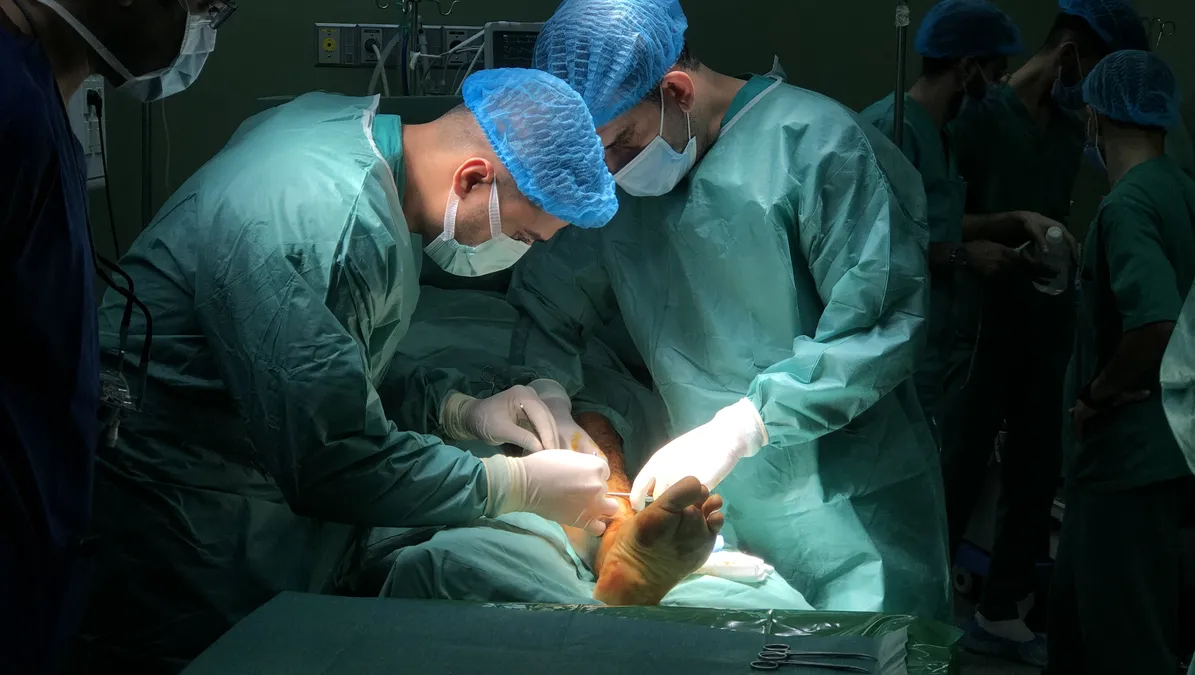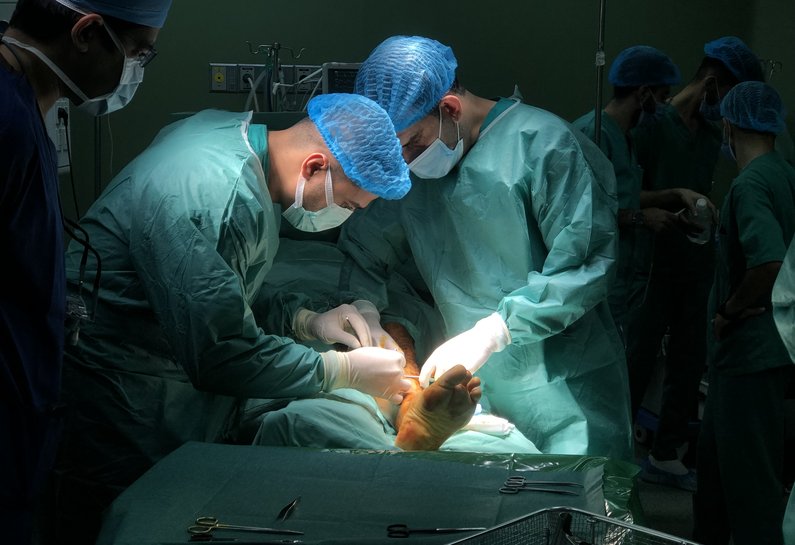“I owe saving my limb to Gaza’s surgeons”: The impact of injuries four years on from the ‘Great March of Return’
12 April 2022


Mohammed Aghaalkurdi, Medical Aid for Palestinians (MAP)’s Programme Officer, spoke to Ahmad*, one of the 1,359 people who was shot with live ammunition during the deadliest day of the protests: 14 May, 2018. Four years later, he is still suffering from the long-term impact of the injury he sustained.
Ahmad, 27, was shot in his left thigh by an Israeli soldier. His injury resulted in cutting not only the main arterial supply for his thigh and leg, but also the nerve supply, along with extensive damage to the surrounding muscles and skin.
“I don’t really recall what happened to me right after my injury. I was told on that day that ambulances did not stop transferring injured and dead bodies to the hospital I was moved to. The huge influx of injuries was occupying the capacity of the hospital,” said Ahmad.
“I was kept in the emergency room and given resuscitative management of my active bleeding from noon to midnight, until my turn came to enter the operating theatre. I was also told that practitioners were coming and going, whispering to each other how horrible my leg was. They mentioned amputating my leg many times.”
Dr Abu Bakr Dawoud, the vascular surgeon who was responsible for Ahmad’s case, reported that the limb was extensively affected, but that it was too early to decide on amputation. It took vascular surgeons four consecutive surgeries before they finally managed to figure out the best way to secure the blood circulation.
When the first two trials failed to control the bleeding, Ahmad was referred for treatment outside Gaza, in Jordan. Acceptance for the referral from the Israeli authorities took five days, during which Ahmad could have lost not only his limb but probably his life due to the uncontrolled bleeding.
Before my injury, finding a job in Gaza was a huge challenge. But now with my disability, it is even worse.
Although the bleeding was secured, Ahmad decided to still go outside for treatment for the other parts of his injury: the nerve and soft tissue. In Jordan, doctors were surprised that surgeons in Gaza managed to conduct his complex vascular surgery. He was told that what was done to him required a massive skillset that they did not think surgeons in Gaza had.
Surgeons in Jordan helped restore the soft tissue of the injury, but Ahmad’s nerve was found to be unsalvageable. “I was lucky that I had the right surgeon at the right time, and I owe saving my limb to Gaza’s surgeons. But I know hundreds of patients who have lost their legs or even their lives because they did not have what I had,” said Ahmad.
Since October 2021, MAP has been supporting the efficiency and effectiveness of vascular surgery services in Gaza. This work includes improving the quality of care for people with disabilities who are classed as vascular patients.
Even though Ahmad did not lose his limb, his injury left him with a neurological deficit that disables sensation and movement from his knee downwards. He uses walking aids to support his disabled foot and correct his gait, but day-to-day life is still a struggle.
“Before my injury, finding a job in Gaza was a huge challenge. But now with my disability, it is even worse,” said Ahmad. “My real disability is that I cannot offer a dignified life to my wife and children because I do not have a job.”
Ahmad’s story highlights the immense talent and dedication of vascular surgeons in Gaza, who are ready to work non-stop to save patients. But they lack the resources and essential medical supplies to deliver such complex surgery. “The surgeons were amazing, but the hospital’s setting and equipment were not helping at all,” said Ahmad.
His case also emphasises the importance of MAP’s support to vascular surgery services and, by delivering essential equipment and medical supplies later in 2022, we hope that patients suffering from similar injuries will go through a smoother journey to recovery without the need to receive treatment outside Gaza.
Please consider making a donation to MAP to help us continue supporting vascular surgery services in Gaza.
*Name changed to protect identity.